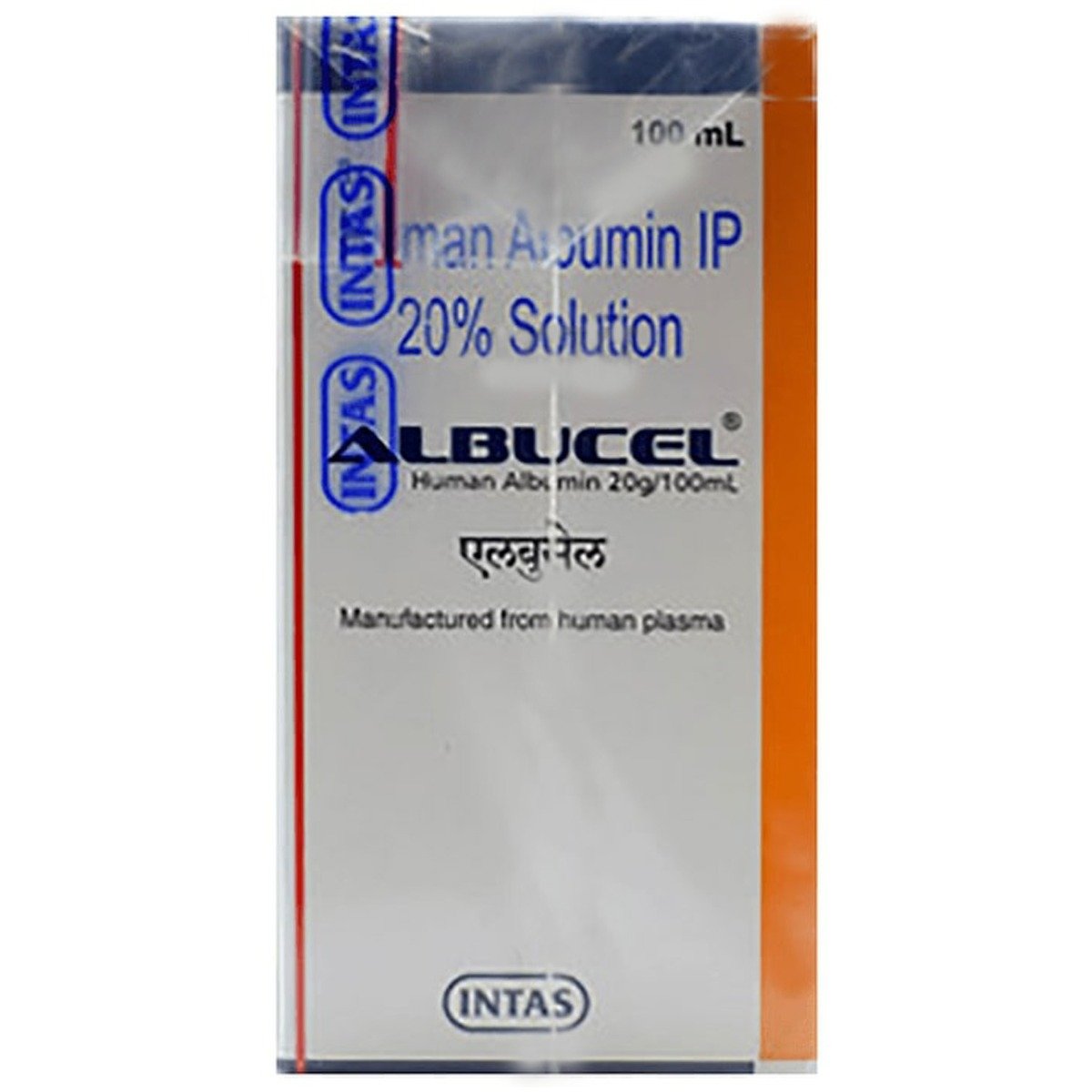Human Fibrinogen
About Human Fibrinogen
Human Fibrinogen is indicated for treating acute bleeding episodes in adults and children with congenital fibrinogen deficiency, including inherited blood disorders such as afibrinogenemia (absence of fibrinogen) and hypofibrinogenemia (low fibrinogen levels).
Human Fibrinogen contains Human Fibrinogen, a protein important for blood clotting (coagulation). It works by correcting the coagulation defect.
Sometimes, Human Fibrinogen may cause side effects such as nausea, vomiting, fever, and thrombocytosis. These side effects may not require medical attention and resolve over time. However, if the side effects persist or worsen, consult the doctor.
Let the doctor know if you are allergic to any of the components in Human Fibrinogen. Consult the doctor if you are pregnant or breastfeeding. Keep your doctor informed about your health condition and medications to avoid unpleasant side effects/interactions.
Uses of Human Fibrinogen
Medicinal Benefits
Human Fibrinogen is indicated for the treatment of acute bleeding episodes in adults and children with congenital fibrinogen deficiency, including inherited blood disorders such as afibrinogenemia and hypofibrinogenemia. Human Fibrinogen contains Human Fibrinogen, a protein important for blood clotting (coagulation). It helps correct the coagulation defect.
Directions for Use
- Follow your doctor's instructions on the dosage and timing of this medication.
- Human Fibrinogen will be administered by a healthcare professional.
- Do not self-administer it.
Storage
Side Effects of Human Fibrinogen
- Nausea
- Vomiting
- Fever
- Thrombocytosis (elevated level of platelets)
Drug Warnings
Do not use Human Fibrinogen if you are allergic to any of its components. Inform the doctor if you have/had a heart attack, surgery, liver disease or blood clot problems. Consult the doctor if you are pregnant or breastfeeding. Let the doctor know if you have any health condition or are taking any medications, including herbal products or vitamin/mineral supplements.
Drug Interactions
Drug-Drug Interactions: No interactions found/established.
Drug-Food Interactions: No interactions found/established.
Drug-Disease Interactions: No interactions found/established.
Drug-Drug Interactions Checker List:
Safety Advice

Alcohol
consult your doctorIt is not known if alcohol affects Human Fibrinogen. Please consult your doctor.

Pregnancy
cautionConsult the doctor if you are pregnant or planning for pregnancy.

Breast Feeding
cautionConsult the doctor if you are a nursing mother.

Driving
safeHuman Fibrinogen does not influence the ability to drive and use machines. However, drive or operate machinery only if you are alert.

Liver
consult your doctorIf you have a history of liver disease, inform your doctor before receiving Human Fibrinogen.

Kidney
consult your doctorIf you have a history of kidney disease, inform your doctor before receiving Human Fibrinogen.

Children
consult your doctorPlease consult the doctor if you have any concerns regarding the usage of Human Fibrinogen in children.
Habit Forming
Diet & Lifestyle Advise
- Eat a diet rich in whole grains, vegetables, and fruits.
- Cut down on added sugars and salts.
- Manage stress with meditation and yoga.
- Exercise regularly.
Patients Concern
Disease/Condition Glossary
Hemorrhagic diathesis: This refers to an increased susceptibility to bleeding or bruising due to certain disorders, injuries, medicines, or disease conditions.
Congenital fibrinogen deficiency: It is a very rare, inherited blood disorder in which the blood does not clot normally. It affects a protein called fibrinogen, which is needed for the blood to clot.
Afibrinogenemia: It is an inherited blood disorder in which the blood does not clot normally because of a mutation that leads to the absence of fibrinogen.
Hypofibrinogenemia: It is a disorder characterised by low fibrinogen levels.
FAQs
Human Fibrinogen is used to treat acute bleeding episodes in patients with congenital fibrinogen deficiency, such as afibrinogenemia and hypofibrinogenemia.
Human Fibrinogen works by correcting the coagulation defect. Thereby, it helps arrest bleeding.
Human Fibrinogen is not indicated in the treatment of dysfibrinogenemia, a coagulation disorder characterised by having an abnormal form of fibrinogen.
Human Fibrinogen may cause fever as a side effect. If the condition persists or worsens, consult the doctor.
Human Fibrinogen contains fibrinogen, a protein that helps platelets stick together and form a clot. While fibrinogen does not directly activate platelets, it supports platelet aggregation by binding to a receptor (called GPIIb-IIIa) on activated platelets. This binding helps platelets stick together and form a more substantial clot.
No, Human Fibrinogen is not an insoluble plasma protein. It contains fibrinogen, a soluble protein the liver makes and is found in the blood plasma. Fibrinogen remains soluble in the blood until it is turned into insoluble fibrin to help form a clot.
No, fibrinogen is not typically found in serum. It is usually present in plasma. During the clotting process, fibrinogen is used and converted into fibrin, which forms a clot. After the clot is removed, the remaining liquid is called serum, which does not contain fibrinogen. On the other hand, plasma still contains fibrinogen because it has not undergone clotting.
No, Human Fibrinogen is not a formed element in blood. It is a medication containing fibrinogen, a protein produced in the liver and found in the blood during bleeding in blood vessels, where it helps with clotting. The formed elements in blood are red blood cells, white blood cells, and platelets.
Human Fibrinogen may cause common side effects such as nausea, vomiting, fever, and thrombocytosis in some people. These side effects do not require medical attention and often resolve over time. However, if the side effects persist or worsen, please consult your doctor.




